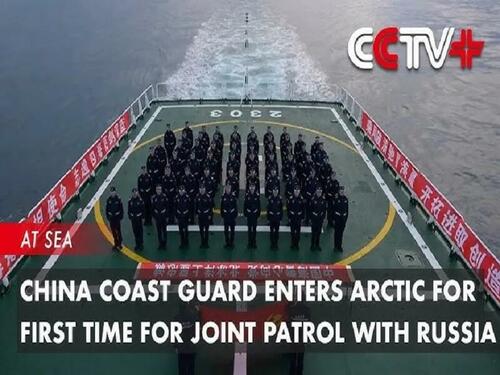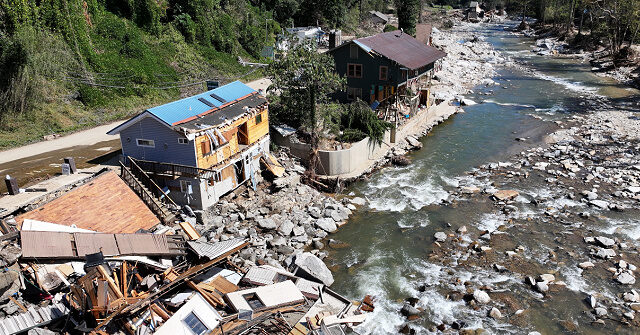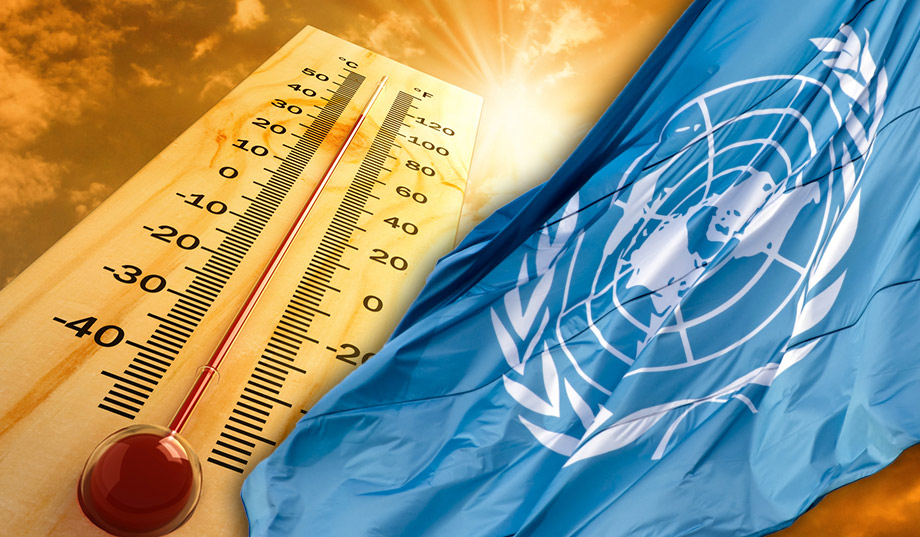Denmark Delays Hydrogen Pipeline To Germany
Denmark Delays Hydrogen Pipeline To Germany
Authored by Tsvetana Paraskova via OilPrice.com,
Denmark looks to commission a cross-border green hydrogen pipeline to Germany in 2031, three years later than the previous timeline, the Danish government said on Tuesday.
Denmark has been working with local transmission system operator Energinet to have the timeline to commissioning shortened to 2031, from 2032 as Energinet’s latest plan says, according to a statement from the Danish Ministry of Climate, Energy, and Utilities.
Energinet has been cooperating with Gasunie on the development of the Danish-German hydrogen network as part of a cooperation agreement. Initial plans envisaged that a cross-border transmission connection between Denmark and Germany would enable the transport of green hydrogen from 2028.
However, after Energinet’s market dialogue on the hydrogen infrastructure ended, the booking requirement was recalculated and the schedule updated, the operator said today.
“Several activities on the critical path have proven to be more extensive and time-consuming than originally anticipated. Therefore, Energinet now assesses that the ‘Lower T’ can be commissioned by the end of 2031 at the earliest, and the interconnections to Holstebro and Lille Torup by the end of 2032 and 2033,” the system operator added, referring to the initial and follow-up branches of the hydrogen network.
“We are still ready to bring state co-financing to the table if the industry commits to booking capacity in the pipeline,” said Lars Aagaard, Denmark’s Minister for Climate, Energy and Utilities.
The Danish Government will work on measures to support the possibility of commissioning the first part of the hydrogen backbone in 2031, it said today.
Green hydrogen has seen several setbacks in Europe recently, due to a lack of customers.
Most recently, Shell and Equinor have ditched plans for low-carbon hydrogen production and transportation in north Europe, due to a lack of demand.
Uncertainty around demand and incentives coupled with cost pressures are weighing on the global adoption of low-carbon hydrogen despite an uptick in final investment decisions in the past year, the International Energy Agency (IEA) said in a report last week.
Tyler Durden
Wed, 10/09/2024 – 05:00
Hurricane Milton Public Advisory
…MILTON REMAINS A CATASTROPHIC CATEGORY 5 HURRICANE… …FORECAST TO MAKE LANDFALL ON THE FLORIDA GULF COAST LATE TONIGHT AS A DANGEROUS MAJOR HURRICANE…
As of 4:00 AM CDT Wed Oct 9
the center of Milton was located near 24.5, -85.4
with movement NE at 14 mph.
The minimum central pressure was 907 mb
with maximum sustained winds of about 160 mph.
Hurricane Leslie Public Advisory
…RESILIENT LESLIE COULD STRENGTHEN SOME MORE TODAY…
As of 5:00 AM AST Wed Oct 9
the center of Leslie was located near 21.2, -47.8
with movement NW at 10 mph.
The minimum central pressure was 987 mb
with maximum sustained winds of about 80 mph.
FEMA’s Incompetent Crisis Response
As I write this, another catastrophic hurricane barrels towards Florida, and I can only imagine not only the natural damage left in its wake, but the hopelessness many will feel…
Hurricane Milton Public Advisory
…MILTON FORECAST TO MAKE LANDFALL ON THE GULF COAST OF FLORIDA LATE TONIGHT AS A DANGEROUS MAJOR HURRICANE… …WEATHER CONDITIONS EXPECTED TO BEGIN DETERIORATING THIS AFTERNOON…
As of 1:00 AM CDT Wed Oct 9
the center of Milton was located near 23.8, -86.0
with movement NE at 12 mph.
The minimum central pressure was 914 mb
with maximum sustained winds of about 160 mph.
Russia Tacitly Recognizes China’s Self-Proclaimed Status As A “Near-Arctic State”
Russia Tacitly Recognizes China’s Self-Proclaimed Status As A “Near-Arctic State”
Authored by Andrew Korybko via Substack,
CNN reported last week that “China’s Coast Guard claims to have entered the Arctic Ocean for the first time as it ramps up security ties with Russia”, though at the time of writing, neither the Russian nor American Coast Guards confirmed their presence in the Arctic. CNN also noted that TASS’ report on this only cited the China Coast Guard’s (CCG) statement on its WeChat page. It’s therefore dubious whether the CCG actually entered the Arctic or just remained in the Bering Sea.
This distinction is important since the perception that Sino-Russo Coast Guard drills were just carried out in the Arctic, no matter how possibly inaccurate as clarified by CNN to its credit, could fuel the West’s efforts to contain Russia along that front. It also adds false credence to the artificially manufactured speculation that Russia is willing to cede sovereignty rights there to China after becoming disproportionately dependent on it over the past two years since the special operation began.
About that, readers should be aware of several relevant pieces of Russian legislation for governing its Arctic maritime territory. A 2017 law banned shipping oil, natural gas, and coal along the Northern Sea Route (NSR) under a foreign flag, while a 2018 one mandates that these ships will also have to be built in Russia. These were complemented by a 2022 law stipulating that all foreign warships must require prior permission to transit the NSR, and only one can do so at a time. These three laws remain on the books.
Their purpose is to ensure that Russia profits as much as is realistically possible from the NSR and can properly protect its sovereignty there. China poses no threat to Russian sovereignty, but allowing its warships to operate unrestricted within Russia’s territorial waters could raise the chances of an incident at sea with its Western Arctic rivals, especially the US. There’s also no reason for them to be there anyhow since Russia is more than capable of ensuring security along this route on its own.
The same can be said for the CCG seeing as how the Arctic is obviously far away from the Chinese coast, but it’s possible in theory that those of its icebreakers that already entered these waters for the first time over the summer could be escorted by the CCG as they lead the way for commercial vessels. If that happens, then this would likely be coordinated with Russia as part of a signal to the West as intuited by what head of the new Maritime Board Nikolai Patrushev hinted at in an interview over the summer.
This could possibly be preceded by formal naval drills in the Arctic Ocean, once again for the same purpose of sending a signal to the West, albeit a misleading one since China isn’t an Arctic naval power and it also has no mutual defense commitments to Russia like such a stunt might make some think. Those aforementioned false perceptions would be deliberately fanned in these scenarios for sending a signal to the West despite the likelihood that it would be exploited to fuel containment along this front.
Russia might conclude that there’s nothing that it can do to stop these developments anyhow so it’s therefore better to play along with these perceptions in order to boost its soft power across the Global South by making these countries think that it and China are jointly countering the West in the Arctic. Even in that case, however, Russia will remain the senior partner in this aspect of its relationship since it’s an actual Arctic state while China claims to only be a so-called “near-Arctic” one.
China’s policy is meant to ensure it a seat at the table in multilateral discussions about that body of water through which it plans to expand trade with Europe via the NSR. This is the natural evolution of its desire to play a greater role in global governance in general and specifically in all emerging frontiers like the Arctic, AI, climate change, etc. The CCG’s drills with their Russian counterparts there, even if they were only in the Bering Sea, reinforces its claim as a “near-Arctic state” due to its adjacency to the Arctic.
Russia tacitly supports this claim as proven by the above, but it remains unclear whether it’s comfortable with China playing a role in Arctic governance, which Russia is reluctant to internationalize since it fears that this could lead to more pressure to curtail the sovereignty rights that it enshrined into law there. All countries want to cut costs on trade so there’s no reason why China wouldn’t want its own natural gas, oil, and coal ships to sail along the NSR instead of having to contract Russia’s for this task.
To avoid any misunderstanding, nothing is being implied about an impending problem in their strategic partnership over this issue since all that’s being put forth is that they have natural differences over this issue, though they’ve thus far been responsibly managed and there’s no reason to expect this to change. Sino-Russo cooperation in the Arctic is indisputably on pace to continue, including in the security dimension, though energy and logistical cooperation are expected to remain the drivers of this trend.
Tyler Durden
Tue, 10/08/2024 – 23:25
Sheriff: Helene Survivors Without Phones, Computers Can’t Apply for $750
An exasperated North Carolina sheriff slammed the Biden-Harris administration’s offer to Hurricane Helene survivors of $750 in “immediate” relief funds, arguing it was nothing compared to what they gave Ukraine and because it requires access to the internet — which residents in the worst-hit areas still do not have.
The post Sheriff: Helene Survivors Cannot Apply for $750 Because They Do Not Have a Phone or Computer appeared first on Breitbart.






